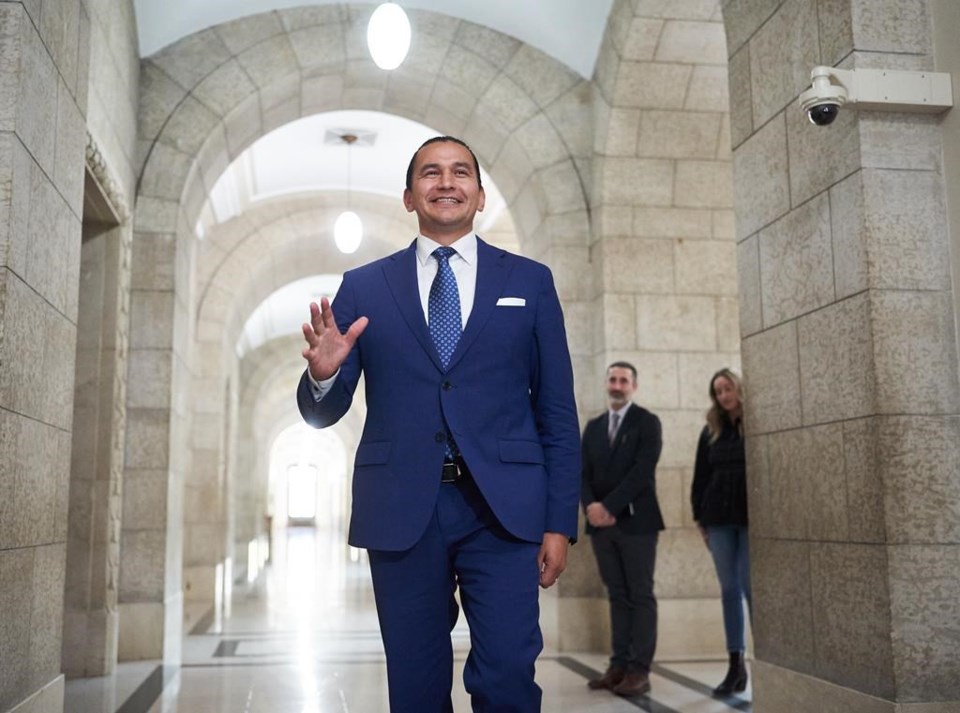WINNIPEG — By all accounts, Manitoba Premier Wab Kinew is still in a honeymoon phase, almost three months after leading his New Democrats to an election win that ousted the former Progressive Conservative government.
Recent opinion polls suggest he is riding high, including an Angus-Reid survey earlier this month that suggested his approval rating is tops among Canada's premiers.
But political analysts say the real test lies ahead, as Kinew tries to fulfil promises to boost health care, improve education and give raises to public-sector workers while dealing with the province's chronic deficits.
"I think (the New Democrats) have done a number of things to allow them to say they're off to a good fast start, but many of those things have been of a symbolic nature," said Paul Thomas, professor emeritus of political studies at the University of Manitoba.
"I think the real test of the new government will come in the new year when the budget is delivered."
Royce Koop, who teaches political studies at the University of Manitoba, said expectations are high, given the NDP's campaign promises.
"With fewer resources to be able to bring (the promises) in, people are going to be understanding at this point, but you can only really expect them to be understanding … for so long," Koop said.
Kinew, the first First Nations premier of a Canadian province, has moved quickly on some promises since the Oct. 3 election.
He had a bill passed through the legislature to recognize Métis leader Louis Riel as the honorary first premier of Manitoba. There were also bills to temporarily suspend the provincial fuel tax as of Jan. 1, and make the national day for truth and reconciliation a statutory holiday.
Many of Kinew's other major promises, such as reopening three hospital emergency departments in Winnipeg and ending chronic homelessness, were commitments to fulfil several years from now.
Kinew said his aim is to show progress along the way.
"Expectations are high, but rightfully so. Manitobans deserve to expect a lot from the people they elect," Kinew said in a year-end interview.
"We're not going to move the needle on homelessness if we put it off for seven years and then try to do everything in Year 8. We need to do a bit on getting out into the streets and helping people in bus shacks and encampments right away."
Kinew has already realized some promises are not as easy to fulfil as he had hoped.
A plan to freeze hydroelectric rates for one year has been pushed back due to the province's growing deficit.
A campaign promise to stop issuing property tax rebates to billionaires who live in other provinces has also not come to pass. The government has yet to figure out how to means-test suspected billionaires from other provinces and carve them out from the province's rebate program for education taxes on residential, farm and commercial properties.
"We're still working our way through that," Kinew said.
The NDP government is starting to put together its first budget, expected in March. Manitoba has run deficits in every year but two since 2009, and is forecasting a $1.6-billion shortfall in the current fiscal year.
Even with an expected increase in federal transfer payments next year, the NDP will likely have a hard time fulfilling promises while trying to keep spending in line, Thomas said
"They have a whole series of advocacy groups and unions who represent their core voting coalition that got them into power," he said. "Those are hard people to say no to."
This report by The Canadian Press was first published Dec. 22, 2023
Steve Lambert, The Canadian Press



